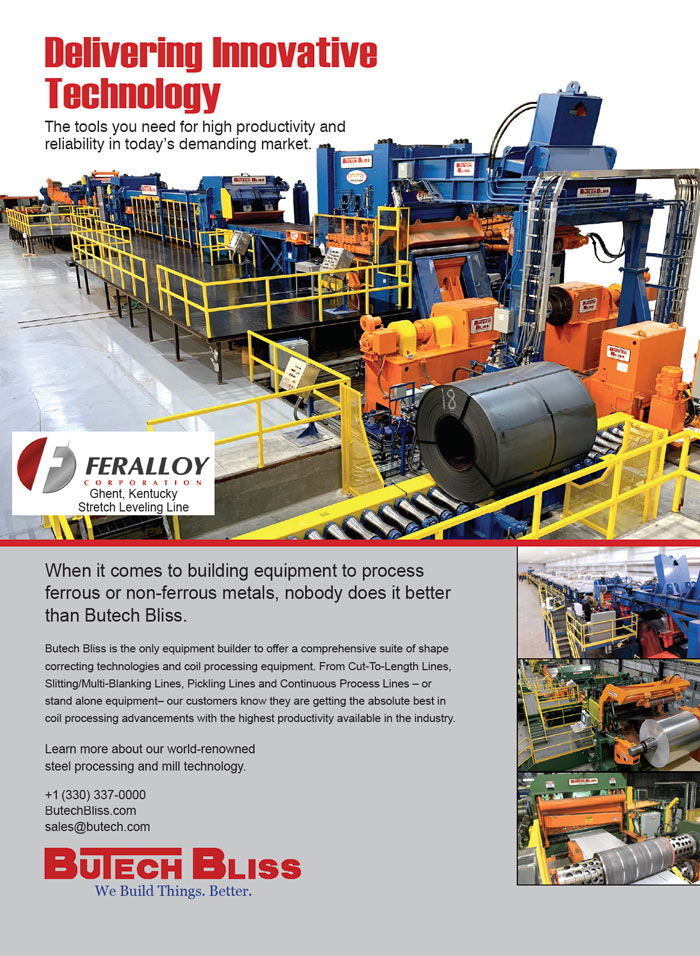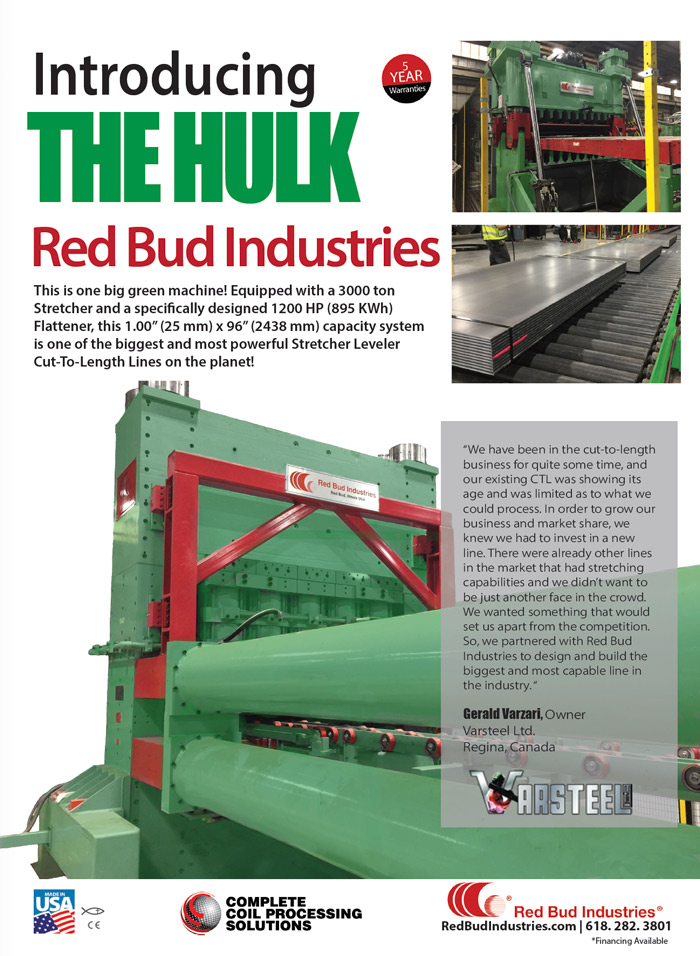aunched in 2003 and based in Akron, Ohio, American Utility Processing (AUP) works with ferrous and nonferrous coil, sheet and plate. It performs leveling, shape correction, buffing and other services for a range of industries that include trailer, tanker, marine, rail and aerospace. The company operates a 100,000-square-foot plant and recently expanded its capabilities with a wide, heavy gauge leveler.
The secret to success can depend on various factors. For some it is a game-changing product, while others rely on a particularly broad clientele. For AUP, it is sheer presence as well as being noticed.
“We have been here for quite a while, and we offer a broad range of services. The industry found us and we responded,” says Rich Kmiecik, chief operating officer for American Utility Processing.
“We level, cut to length, stretch, buff and shear a lot of different products including coils, large sheets, small parts and everything in between,” says Kmiecik. To handle this product range, AUP employs top-level machinery, including a 96-inch-wide stretcher-leveling line, 102-inch-wide heavy slitting line and multiple buffing lines. “We are well equipped to process a wide range of metals, including tempered stainless steel, carbon steel and aluminum,” he adds.
In the long run, being “found” by potential clients requires a distinctive feature, an eye-catching detail. “Our goal is to serve a broad clientele base and to keep attracting new customers. Therefore, we are constantly looking for new technologies to integrate into our facility,” Kmiecik says.
For Kmiecik and his team, the trend toward lightweight, high-strength products was an opportunity that was not to be missed. “Our customers expect parts that are flat and stay flat,” Kmiecik says. “Flatness directly impacts efficiency, as it ensures smooth downstream processing like laser cutting, stamping, punch press, bending, shearing and welding.”
But if internal stresses cause leveled materials to break or bend, these operations can grind to a halt. For AUP, it is essential to invest in technology and upgrade equipment—and address those issues.
For many years, re-leveling for cut parts or sheets was a service AUP could not offer. “This meant that we had to scrap material that otherwise could have been salvaged,” Kmiecik says. Consequently, AUP began considering ways to level individual parts/sheets/blanks and solve shape problems such as cross bow, coil set and edge wave.
 flatness directly impacts efficiency, as it ensures smooth downstream processing.
flatness directly impacts efficiency, as it ensures smooth downstream processing. 
“It not only saves time and reduces scrap; it is also especially suited for very strong materials thanks to its servo-hydraulic system with gap control,” says Woods. The leveler flattens everything from sheets to laser-cut parts “in a matter of seconds, managing thicknesses of up to 1.1 inch.”
Since AUP began leveling material on the FlatMaster, “we gained a reputation for correcting sheet, plate, blanks and cut parts. In short, we can address varying needs and finally venture into markets we couldn’t tap into before,” Woods says.
Since the FlatMaster was installed in late 2019, AUP has steadily increased processing volume. “We hope to further increase our output as the word of our extended services reaches new and existing customers,” Woods says.
AUP’s customers receive a reliably flat product, which increases their throughput and reduces scrap. “Because we offer higher quality, our customers are able to salvage sheets and parts that had to be scrapped in the past,” he says. “We help them save money, which boosts our reputation as a trustworthy processor of coil, sheet, plate and cut parts.”
This flexibility also adds stability to AUP’s business. “The FlatMaster helps us to compensate for the lulls that can occur from time to time in certain sectors. So even if a specific customer doesn’t require our services for a while, there are plenty of others who do. Our new leveling capability has opened up many new opportunities,” Woods adds. As a one-stop shop for various flatness issues, AUP will keep getting noticed and further secure its solid role as a leveling expert across the American metals landscape.

